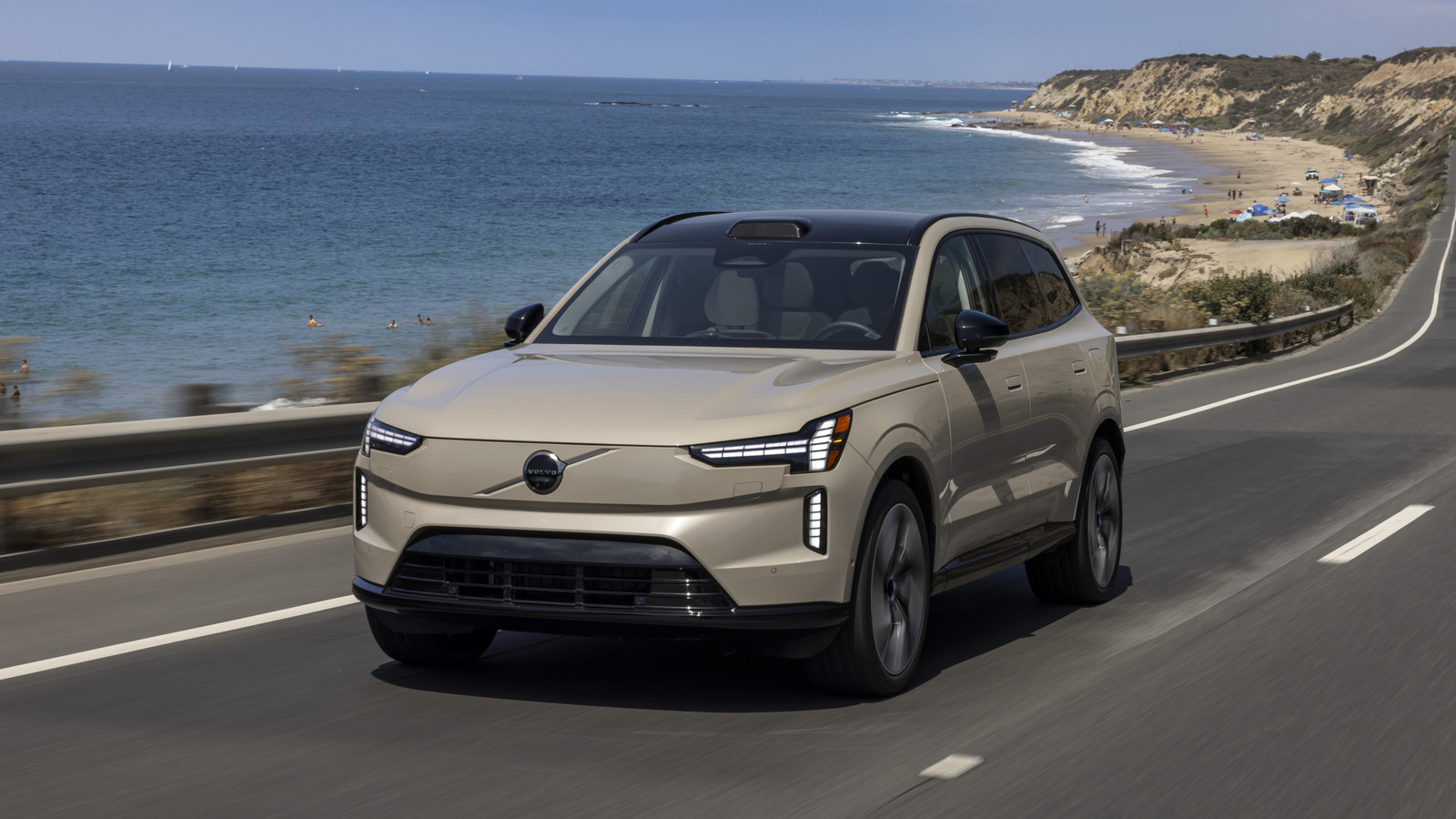
Volvo has reversed direction on a previous commitment to supply standard lidar on the EX90 SUV and ES90 sedan. It started with a vague announcement that “To meet customer demand and due to limited supply of the lidar hardware, production of cars without lidar starts already in 2025.” Later, Volvo told Reuters that it had ended its relationship with Luminar Technologies, the sole supplier of lidar systems for these models.
Volvo and Luminar have worked closely together since 2020, when Volvo first announced its intention to use lidar on a production car. Volvo even invested in the company to help fulfill its promise to develop a lidar system small and affordable enough for widespread use. Luminar succeeded, supplying the small dome at the top of the EX90 and ES90 windshields that looks a bit like a rally car air vent. It may damage your phone’s camera at short range, but it also works, and works well.
The technology itself is not the reason for the dispute. Volvo elaborated further in a statement to The Drive and other outlets:
“Volvo Cars has decided to remove the lidar sensor from its EX90 and ES90 cars and discontinue its relationship with supplier Luminar,” a Volvo Cars USA spokesperson wrote in a statement Tuesday. “Volvo Cars has made this decision to limit the company’s supply chain risk exposure and it is a direct result of Luminar’s failure to meet its contractual obligations to Volvo Cars.
“To meet customer demand, be able to offer the Volvo EX90 and the ES90 cars to more customers as well as limit the company’s supply chain risk exposure, Volvo Cars had previously made the decision to make lidar optional on these vehicles starting 2026. The termination of the agreement with Luminar means lidar will no longer be offered on any EX90 or ES90 car from Model Year 2026 onwards.”
Trouble at Luminar
Volvo’s strong partnership with Luminar gave the smaller company the credibility it needed to go public in 2020, according to TechCrunch. That brought a great deal of money into the company and made founder Austin Russell one of the youngest self-made billionaires. It began to diversify beyond Volvo, making deals with Polestar, Nissan, and Mercedes-Benz, according to InsideEVs. Luminar even made a deal with Tesla, despite years of Elon Musk opposing the use of lidar technology for reasons that remain unclear.
Luminar should have been doing well, but continued to have issues. Last year, it laid off one-fifth of its workers while outsourcing sensor manufacturing to a third party. Russell suddenly resigned this past May after Luminar’s board of directors opened a “code of business conduct and ethics” inquiry against him. CFO Thomas Fennimore has also resigned in the wake of Luminar’s breakup with Volvo. There is likely more to the story from Luminar’s side that hasn’t been made public yet, but it appears that somehow the company went from what should have been a position of strength to being unable to fulfill its commitments, at least according to Volvo’s accusations.
While Luminar has not commented to the press, a recent regulatory filing to its stockholders states its position on the situation with Volvo:
…the Company has made a claim against Volvo for significant damages and has suspended further commitments of Iris LiDAR products for Volvo pending resolution of the dispute. The Company is in discussions with Volvo concerning the dispute; however, there can be no assurance that the dispute will be resolved favorably or at all. Furthermore, there can be no guarantee that any claim or litigation against Volvo will be successful or that the Company will be able to recover damages from Volvo.
The Company is actively managing its working capital and liquidity position. The Company has stopped payments with respect to its Iris LiDAR products for Volvo in light of the ongoing dispute with Volvo. As a result, the Company has received a notice of breach from the Company’s principal supplier of Iris LiDAR sensors.
The show must go on
It’s not entirely clear what the future of Volvo’s driver assistance and autonomous systems will look like. Lidar was part of that plan, but now that’s out the window. In its statement, Volvo says:
EX90 and ES90 cars meet Volvo Cars’ safety standards and provide a high level driver support. This is enabled by the cars’ powerful core computing and advanced sensor set – with or without a lidar.
Indeed, with eight cameras, five radars, and 16 ultrasonic sensors, the EX90 remains well-equipped to keep its occupants safe. No doubt the software will have to be rewritten to compensate for the missing lidar dome, but these other sensors can also be used to determine distance. It’s likely that existing features such as Pilot Assist, which combines adaptive cruise control and lane-keeping assistance, will remain available, though Volvo has not confirmed this.
Lidar played a significant role in Volvo’s plan for autonomous driving systems. Even there, hope may not be lost. Luminar is not the only company in the world that makes lidar systems. Tesla managed to make Full Self-Driving work without it (sort of), so it’s possible that despite Volvo’s previous commitment to lidar, it could also go without if necessary. We’ll have to wait and see what direction Volvo decides to go.

